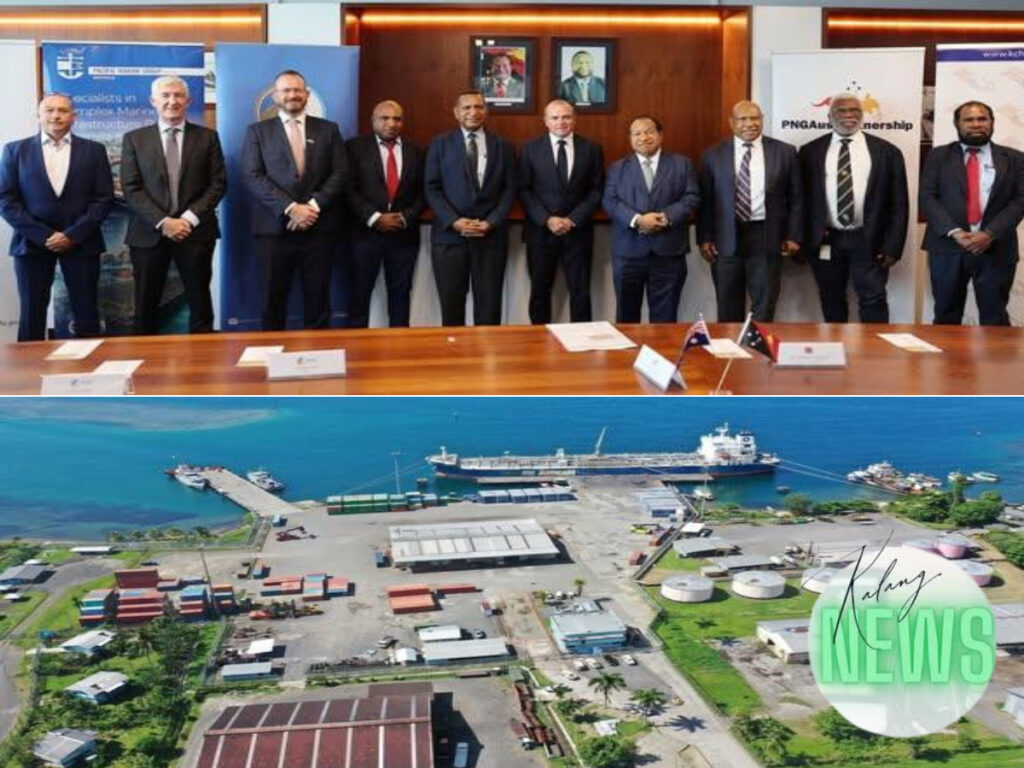K260 MILLION KIMBE PORT REHAB PROJECT TO COMMENCE SOON

AUSTRALIA is supporting access to greater economic opportunity in West New Britain through the expansion of Kimbe Port, the third largest port in Papua New Guinea.
Yesterday, Minister for State Enterprises, the Hon. William Duma MP, presided over the signing of a K260 million contract for this project.
Financed by the Australian Infrastructure Financing Facility for the Pacific (AIFFP), PNG Ports Corporation Ltd awarded the contract to Pacific Marine Group Pty Ltd who will commence works imminently with construction scheduled to conclude in 2026.
The project involves the demolition and construction of a new wharf structure as well as restoration works to the existing wharf and revetment walls.
This contract represents the first construction project awarded under the AIFFP-funded PNG Ports Infrastructure Investment Program.
“This K260million rehabilitation for Kimbe is not merely a physical upgrade – it represents a strategic investment in Papua New Guinea’s future,” said Minister Duma.
“The project will increase the port’s capacity and efficiency, enhance safety standards, and align operations with modern environmental and technological requirements.
It will stimulate economic growth and strengthen our country’s role in regional trade.”
With a focus on maximising opportunities for local workers, the program aims to support the implementation of maritime investments across key national ports, including Kimbe, Oro Bay, Daru, Lae, and Kavieng.
“Kimbe will be the first of five major Port upgrades supported by Australia in PNG,” said Australian High Commissioner John Feakes.
“The project is structured to maximise opportunities for local workers and suppliers.
These outcomes for PNG are only possible where high quality contractors with proven track records, like Pacific Marine Group, deliver works that put PNG first”
“In total, the Kimbe Port project is expected to create up to 300 local jobs through construction.”
The expansion of Kimbe Port, first built in 1969, will improve connectivity and supply chain efficiency, thereby enabling economic and social development for rural communities in Papua New Guinea.
Picture Supplied.





